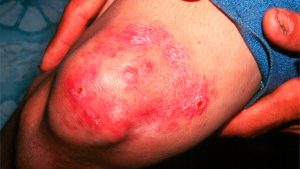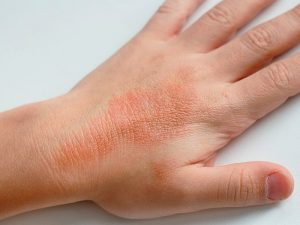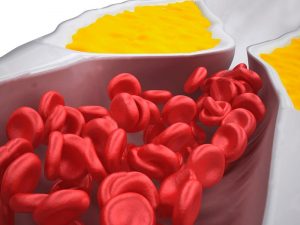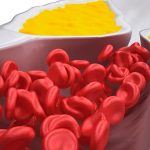Most organs are essential for the proper function of the body, but did you know you can live a full life with only one working kidney? Kidney failure – when people lose the function of one or both of their kidneys – requires either dialysis treatment or a kidney transplant from someone with two healthy kidneys.
The most essential role of the kidneys is to eliminate waste toxins in the body. Blood is filtered through these bean-shaped organs and waste is excreted through your urine. When kidneys begin to fail, waste builds up in the body. If not detected early enough kidney disease can turn into kidney failure and can be life threatening. In 2013, more than 47,000 Americans died from kidney disease. This chronic condition is a worldwide health crisis. One in 10 people have some degree of kidney disease, which can develop at any age but is more common in those 75 and older. Kidney disease has become an economic burden, exceeding $48 billion a year in treatment.
The further kidney disease develops, the more costly it is to treat. Learn the warning signs, causes and preventative measures of kidney failure. Sometimes the cause of kidney disease is not known but it is often due to other conditions (primarily diabetes and high blood pressure). Talk to your doctor about your level of risk and preventative measures. Early treatment can make all the difference.
Causes of Kidney Disease
Acute kidney failure: This condition, also known as acute kidney injury, occurs suddenly (within hours or days). Acute kidney failure can be a temporary condition caused by:
- Autoimmune kidney diseases.
- Some medications.
- Dehydration.
- Urinary tract obstruction.
- Uncontrolled heart or liver disease.
Chronic kidney failure: Chronic kidney diseases affect the kidneys over a long period of time. Untreated, they can lead to kidney failure. The main causes of chronic kidney diseases are:
- Diabetes: Without proper management, high blood sugar levels from diabetes can damage the kidneys.
- High blood pressure: Kidneys rely heavily on blood vessels to purify the body. High blood pressure can cause arteries around the kidneys to harden, narrow and weaken. Damaged arteries prevent blood from reaching the kidney tissue, which is why high blood pressure is the second leading cause of kidney failure.
Risk Factors for Kidney Disease
In addition to certain diseases, other factors that put you at risk of chronic kidney disease include:
- Smoking.
- Obesity.
- Ethnicity (African- American, Native American and Asian American).
- Family history of kidney disease.
- Old age.
- Abnormal kidney structure.
Signs of Kidney Failure
There are five stages of kidney failure. Symptoms may not manifest in the early stages and vary from person to person. Early signs of kidney failure include:
- Fatigue.
- Upset stomach.
- Ethnicity (African- American, Native American and Asian American).
- Difficulty concentrating.
- Swelling of the hands or ankles.
- Frequent bathroom trips.
- Muscle spasms.
- Dry or itchy skin.
- Poor appetite.
- Stage one: This phase includes persistent proteinuria (excess protein in the urine).
- Stage two: Mild loss of kidney function and proteinuria.
- Stage three: Mild to severe loss of kidney function.
- Stage four: Severe loss of kidney function.
- Stage five: Kidney failure. Treatment required for survival of patient.
Kidney Failure Treatment
When kidneys reach stage five, kidney failure treatment is required. There are two options:
- Kidney transplantation: A healthy kidney is transplanted into the body of the kidney-failure Healthy kidneys can come from either a living or deceased donor. Following a kidney transplant, the patient will need to take medications for the rest of their life to help prevent the body rejecting the transplanted organ.
- Dialysis: Dialysis is a procedure that removes waste and excess fluid from the blood One type of dialysis, hemodialysis, uses a machine to filter waste and fluid from the blood. In the second form of dialysis, the patient is hooked up to a machine and a thin tube (catheter) inserted into the abdomen. The body is pumped with a dialysis solution that absorbs waste and fluids and then drains from the body.
Kidney Failure Diet
If you suffer from chronic kidney disease, your doctor may recommend that you eat a special diet and you should consult a dietitian to create a meal plan. Dietary recommendations include:
- Avoiding products with a lot of salt: Frozen dinners, canned soup, processed meats and cheese all include additional salt and should be avoided.
- Eating less potassium-rich foods: Foods with low levels of potassium include apples, cabbage, carrots, green beans, grapes and strawberries. Avoid bananas, oranges, potatoes, spinach and tomatoes.
- Limiting your protein intake: A dietitian can recommend how much protein you should consume daily, but aim for low-protein foods such as vegetables and fruits, breads and cereals. High-protein foods include lean meats, eggs, milk, cheese and beans.
Prevention
Even if you do not fall under a high-risk category for kidney disease or kidney failure, take measures to keep your kidneys healthy:
- Quit smoking.
- Avoid alcohol.
- Lose weight if you are overweight or obese.
- Follow a healthy diet plan.
- Lower salt intake.
- Stay active and exercise regularly.











